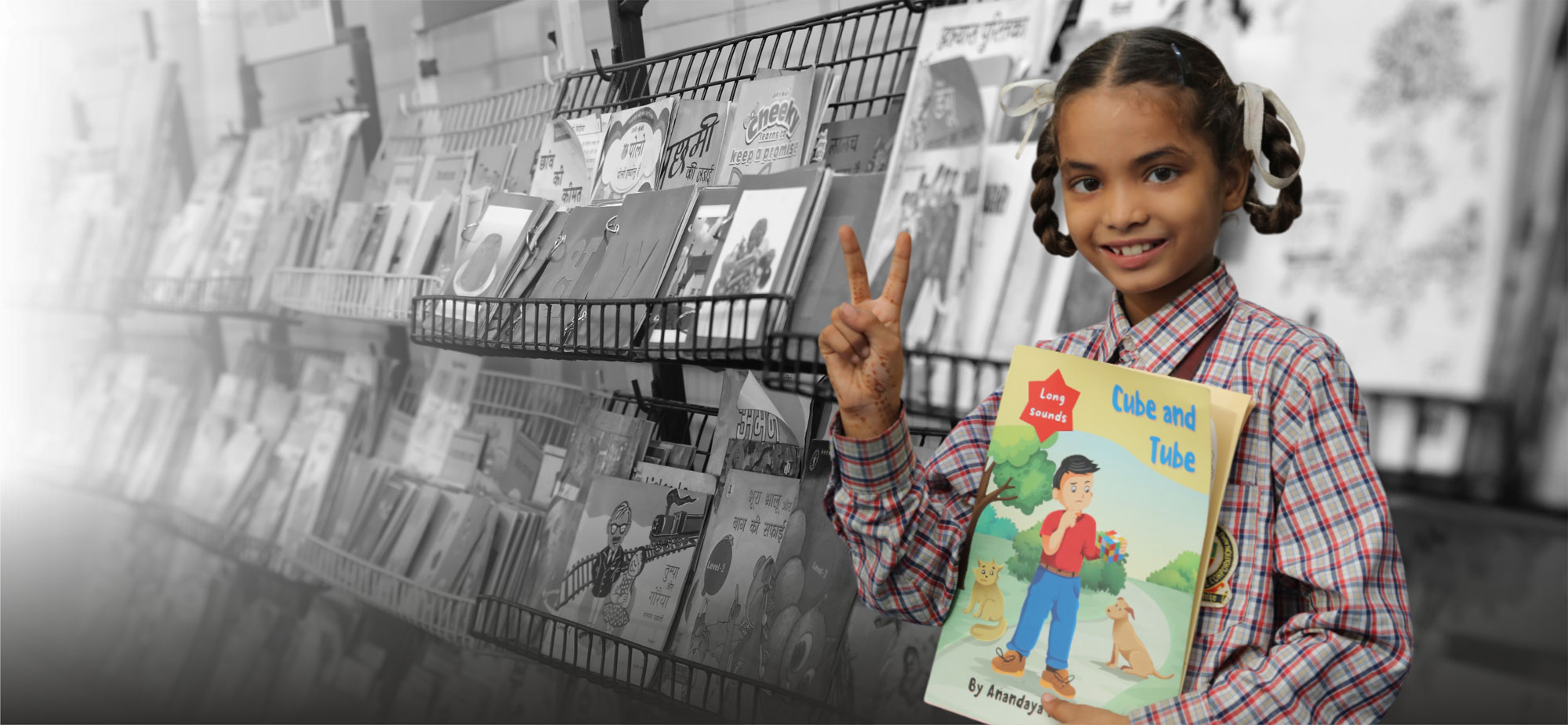Project
Pustakalaya
Our Work
Our Work

Project Pustakalaya aims to transform government primary schools through our learn-to-read and library program that fosters a love for reading. It strives to empower children with reading fluency, critical thinking and expression skills, enhancing their learning outcomes. It's stakeholder's intervention focus on building the capacities of teachers and educators, for the optimum use of the library resources.
The Perpetuity Program ensures the long-term, sustainable impact of Project Pustakalaya through regular upgradation and replenishment of books. Ongoing monitoring and continuous teacher upskilling makes the program sustainable while collaboration with government bodies strengthens systems and brings systemic change. The minimum recurring investment makes the program truly perpetual.

Project Pustakalaya employs a rigorous Difference-in-Difference (DiD) evaluation to measure improvements in reading with comprehension, critical thinking and expression. The assessment compares literacy outcomes between a treatment group—students in schools implementing the intervention—and a control group with no exposure. Using a structured and representative sample across multiple schools, we track how the program helps reduce the literacy gap over time, generating clear, evidence-based insights into its effectiveness.
Project Pustakalaya’s Monitoring & Evaluation (M&E) Plan ensures effective implementation and continuous upgradation through a structured, data-driven approach. It focuses on integrating the program into the school system and continuous upskilling. The evaluation framework tracks the development of a reading culture, optimum use of resources, and timely book replenishment. Monthly status reports and standardized monitoring forms generate actionable insights, ensuring sustainability and long-term impact.

Our facilitators engage with education authorities, principals, and teachers to strengthen library integration in schools. Education authorities receive Library Audit and Ranking Reports to assess implementation. Principals attend conferences on program alignment, accountability, and sustainability. Teachers undergo structured training in reading strategies, phonics, and library-based learning, fostering effective foundational literacy instruction.
The Digital Teaching Aids enhances reading fluency through a range of interactive resources. Anandaya’s decodable Learn-to-Read books in digital format and the supporting Teacher Tutorials ensure effective foundational literacy instructions and systematically strengthen reading fluency in children.Our Read-to-Learn books in digital format enhance children’s knowledge on Child Rights and understand SDGs. Radio Pustakalaya, a live storytelling session conducted weekly by experienced storytellers, brings stories to life within the homes and hearts of the community. Together all these digital aids create an interactiveand engaging learning experience andupskill teachers in effective literacy pedagogy. These Digital Teaching Aids ensure inclusive learning for children with special needs (CWSN) through audio storybooks, videos, and large text formats, making reading accessible for those with learning disabilities.

The Learn-to-Read Program addresses gaps in English reading fluency through a structured and systematic program of decodable readers grounded in the science of reading. With a strong phonetic base, controlled vocabulary, staggered approach and teacher training, it replaces rote learning with effective instruction. The program enables children to progress independently to higher reading levels.
The specially curated child-friendly booklist features engaging illustrations, contextual relevance, age-appropriate content, in diverse genres to enhance reading experiences. It is derived from a master booklist of 5000 books, and this project-based selection is tailored to all literacy levels and languages. The collection covers SDGs, STEM, and child rights, ensuring holistic learning. It is continuously enriched with new books annually, fostering sustained educational impact.

The Physical Library is designed as a vibrant and engaging space with a meaningful child-centric booklist, wall-to-wall carpeting, and low tables for fluid seating. It is attractive, motivating, and provides easy accessibility to books, encouraging autonomy and independent exploration. Supported by digital teaching aids, it fosters a dynamic learning environment that enhances reading fluency, critical thinking skills, and expression.

Here can be your custom HTML or Shortcode
This will close in 20 seconds